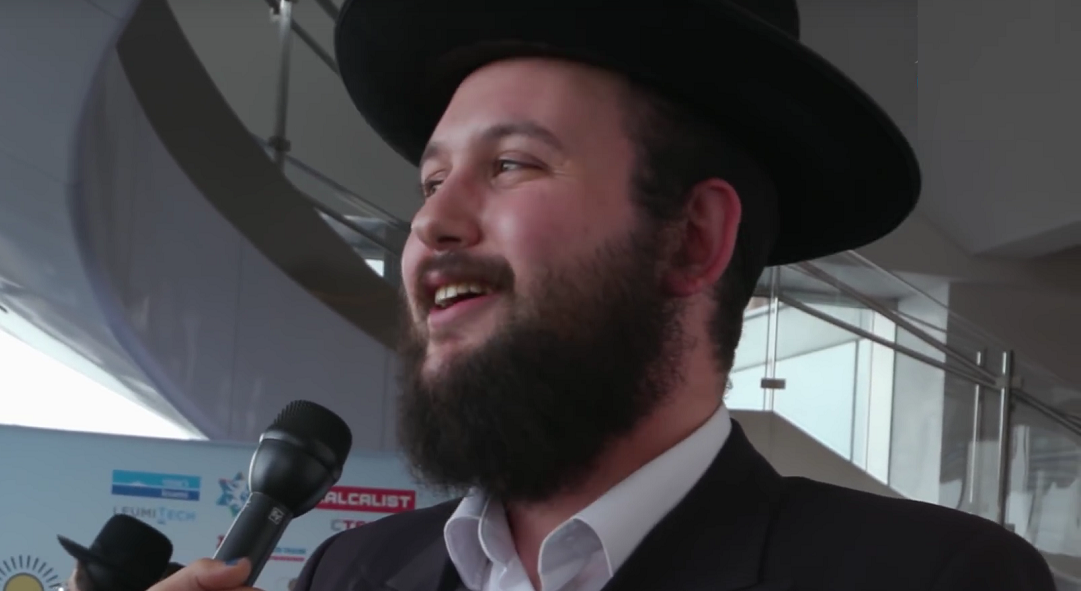Is A Chassidic Tech Whiz a Good Role Model?

With long-term yeshiva and kollel learning now well-established across the world, a brief conversation in Tel Aviv highlighted a universal chinuch dilemma

A
pre-corona encounter with a proud Gerrer chassid at a Tel Aviv tech conference left me thinking about role models.
It was one of the most unusual scenes imaginable. Picture Cybertech, an international Israeli technology conference focusing on cyber-defense firms. The massive venue in Tel Aviv was full of booths manned by young geeky types from startups and international firms demonstrating cyber security products.
At one station users wearing virtual reality headsets were ducking and weaving as they tried to exit a virtual escape room. People were lining up to code their way past the Israeli police cyber defenses. International visitor and locals mingled as deals were discussed by dozens of firms with techy sounding name and sci-fi graphics.
But what drew my interest – and that of many more besides- was a live phone hacking demonstration. Arriving early enough to bag a front-row seat, I watched as the darkened hall filled up with a few hundred people, mostly secular or non-Jewish, gazing at the gigantic screen at the front.
The session was introduced by a former aide to Hillary Clinton, and then attention shifted to the commanding figure tapping rapidly on a keypad at the lectern.
But what caught all eyes was that the hacker was about as far from the hoodie-wearing stereotype of a tech type. Dressed in long black coat, trousers tucked into his socks, his alert, smiling face framed by a beard and payos and crowned by a hat, was a Gerrer chassid named Yisrael Gurt.
In fluent, self-taught English, the Bnei Brak-raised young man, who is chief technology officer of his cyber-defense startup, went on to hack into the phones of various audience members, showing them how easy it was to take control of their cameras without the owner knowing it.
More than the short demo, I suspect that a lot of the audience will have been entranced by what I saw: a demonstration of unabashed frum pride from someone who’s been ranked by Google as one of the world top hackers.
To me that scene cried out two words: “Kiddush Hashem”. I wanted to hear his story, and so I made my way over to the hacker.
I wasn’t prepared for Yisrael Gurt’s answer: after he’d exchanged business cards with a representative of the Panama president’s office interested in his tech expertise, we spoke and I asked if he wanted to share his story.
Despite his pleasant, totally respectful manner, his response surprised me.
“I can’t talk to religious media,” he said. “My rav has told me not to.”
Seeing my lack of comprehension, he explained: “My rav doesn’t want to be a role model for children and bachurim to think that you can get where I am.”
His reply left me dumbfounded, firstly by his humility and personal respect for the ideal of Torah. A spot on Forbes Israel’s “30 under 30” is a big deal, and his visibility makes him a phenomenon in the glamorous tech world, and yet he looked totally comfortable with the low-profile he was keeping in his own society.
But it was also a disturbing answer. What greater Kiddush Hashem could there be than the sight of someone so committed to his Torah background that he wouldn’t attempt to blend in to the secular scene around him? And as for a role model, for any of the thousands of young men anyway going out to work, why, I thought, is that balance not worth emulating?
It was hard not to conclude that here again was a manifestation of the Israeli chareidi fear of legitimizing those who venture into mainstream employment, lest others follow.
But as I drove away, the counter-argument hit me – one that, although more prevalent in Israel, resonates in America and England today as well.
The Israeli chareidi world is undoubtedly the center of the Torah world today by virtue of sheer numbers. The Litvish, Chassidish and Sephardi systems in Israel are churning out quantities of Torah learners unprecedented probably since the times of Rebbi Akiva and his 24,000 students.
The vanguard of that Torah community is a large number of bona fide Talmidei Chachamim.
That ecosystem didn’t grow in a vacuum. Israel’s “Torah only” system, focused exclusively on producing lamdanim, chassidim and rabbanim (following the different emphases of the above-mentioned groups). It has acted as a kind of hothouse, channeling all efforts into the creation of a Torah society, and has been stunningly successful in achieving this.
But here’s the point: If an alternative role model existed of a proud Torah-true tech guy, could that Torah boom have taken place? Would those numbers have existed? It’s hard to imagine.
With long-term yeshiva and kollel learning now well-established across the world, that brief conversation in Tel Aviv highlighted a universal chinuch dilemma: what role model should Torah societies provide?
If a successful frum entrepreneur receives social recognition, would that dampen the societal drive to excel in Torah? But if young people don’t see a role model who combines both worldly involvement and proud adherence to Torah standards, aren’t they at risk when they head out (as many do) to the world beyond the beis medrash?
On the long road to returning Torah learning to the center of Klal Yisrael’s national life since its postwar low point, that was the choice that presented itself.
But with many young people within the Torah world voting with their feet, some going to learn and others going to work, perhaps that’s a false dichotomy today.
Without in any way affecting the ideal of Torah learning, maybe both role models need to exist?
Oops! We could not locate your form.







